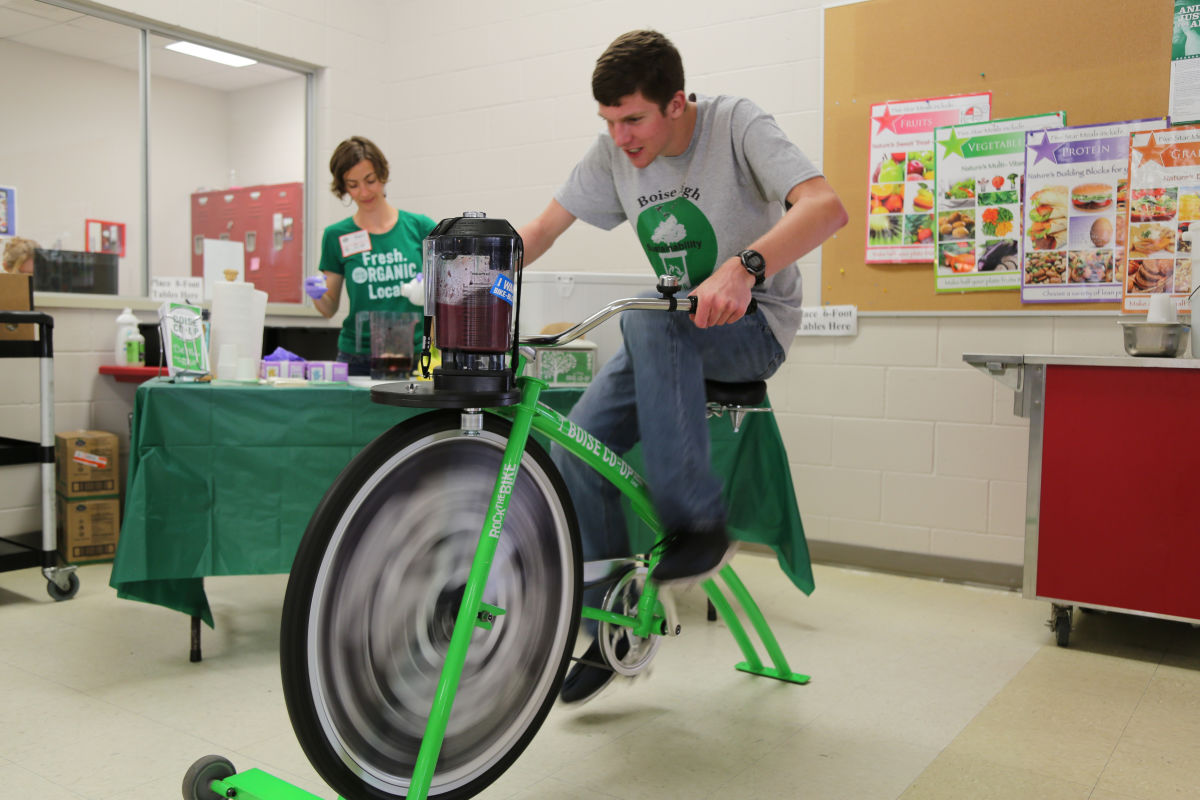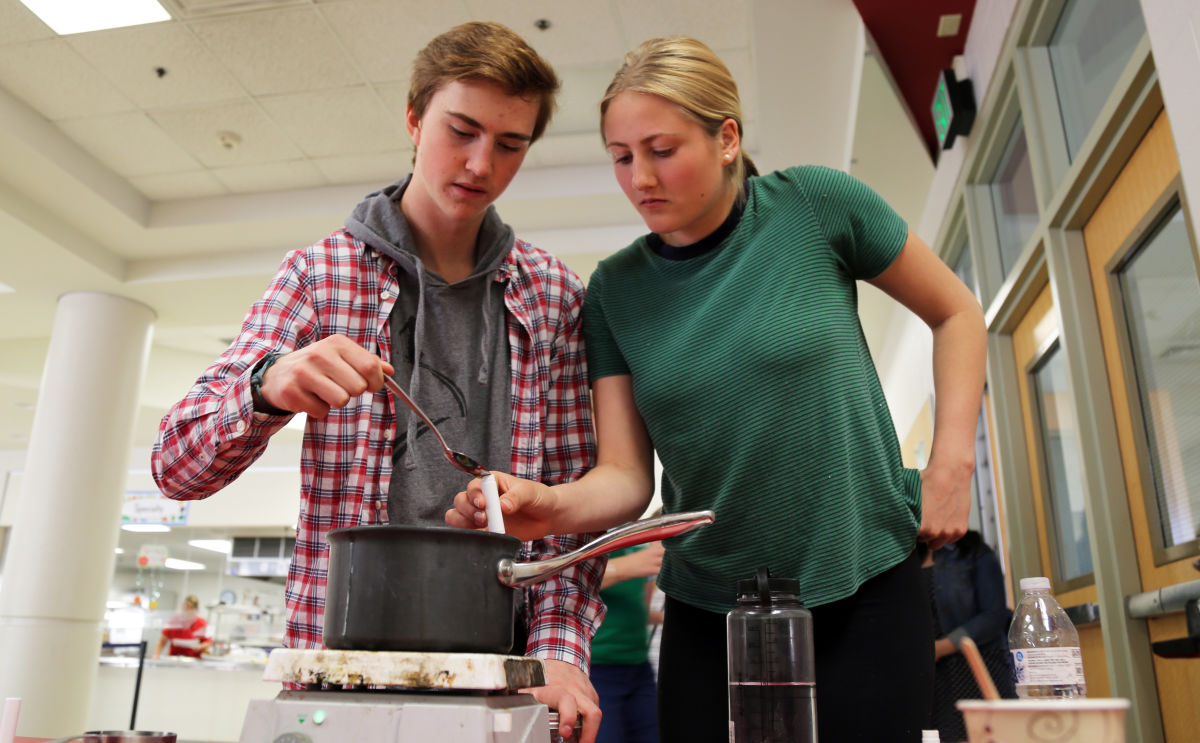Can you name America’s biggest export, its most prodigious product?
The students at Boise High can because they participated in a school-wide read of “Garbology,” a book by Pulitzer Prize–winning journalist Edward Humes. Trash, writes Humes, could become America’s greatest legacy.
In an effort to alter America’s foreseeable future, Boise students launched a public awareness campaign and held a Sustainability Summit on campus Friday. The summit of interactive stations, booths and keynote speakers revealed best practices in sustainability of the environment, happiness and personal health.
“We want to fix the problem by starting a trend,” said Boise High junior Hank Showalter.

The summit featured booths where students made their own ice cream, granola and lip balm all in reusable containers. Other displays showed off school gardens, composts and recycling bins.
“We’re showing ways to not create waste when waste is unnecessary,” said student Nooria Ahmadazizy.
About 30 students organized the summit and they invited all students, parents, teachers and guests to attend. The inspiration of the activities, the book“Garbology,” was offered as a gift.
“From reading the book we have a common knowledge and it’s brought us all together,” said student Emily Scott. “We care more and we’re speaking the same language — recycle, reuse, reduce.”
Sustainability is a balancing act. The old models of consumption and industrialization will not support the world’s growing population. If humans wish to have the water, materials and natural resources needed to thrive, a new approach to living is called for. The 21st-century definition of sustainability refers to the need to develop the sustainable models necessary for both the human race and planet Earth to survive.
According to “Garbology,” the average American produces 102 tons of garbage across a lifetime. In the book, Humes investigates trash — what’s in it; how much we pay for it; how we manage to create so much of it. He also writes about how some families and communities are changing their habits. He describes a family whose annual trash production can fit into a mason jar. Bea Johnson was featured in the book for transforming her family’s consumption patterns and she was a keynote speaker on Friday.
“Our generation will push people to fix the problem,” Showalter said.
Boise High teachers selected “Garbology” from dozens of books because it has teachable content over a variety of subjects — science, math and art. The book is broken into sections, so it’s easy for all reading abilities, and there is great value in teaching sustainability, said Boise teacher John Coulthard.
“Teachers and students at Boise are passionate about engaging in meaningful and impactful endeavors,” Coulthard said. “The Big Read has brought people together and enhanced student learning.”
The entire Boise High community — from students to faculty to support staff to board members — got a free copy of the book in the fall, courtesy of a Boise Public Schools Foundation grant. Most teachers infused “Garbology” into their lesson.
Garbology inspired and influenced much sustainability activity at Boise High, from recycling to composting.
“We have staff and students working together in unique ways,” Coulthard said. “Students are driving the projects, and teachers and staff are acting in advisory and support roles.”
Besides the summit, students are tackling other sustainability projects. They are proposing the City of Boise approve an ordinance to require stores to charge customers for disposable shopping bags in an effort to promote using recyclable bags.
Students calculated that their cafeteria generates about 1.5 tons of waste per month so they ramped up composting and recycling efforts to reduce the waste.
Students said they’ve changed their own personal habits by doing things like shopping locally, reducing food waste and reusing their use of packaging from water bottles to shopping bags.
“This is exciting because students can apply learning in a real-world setting,” Coulthard said.

